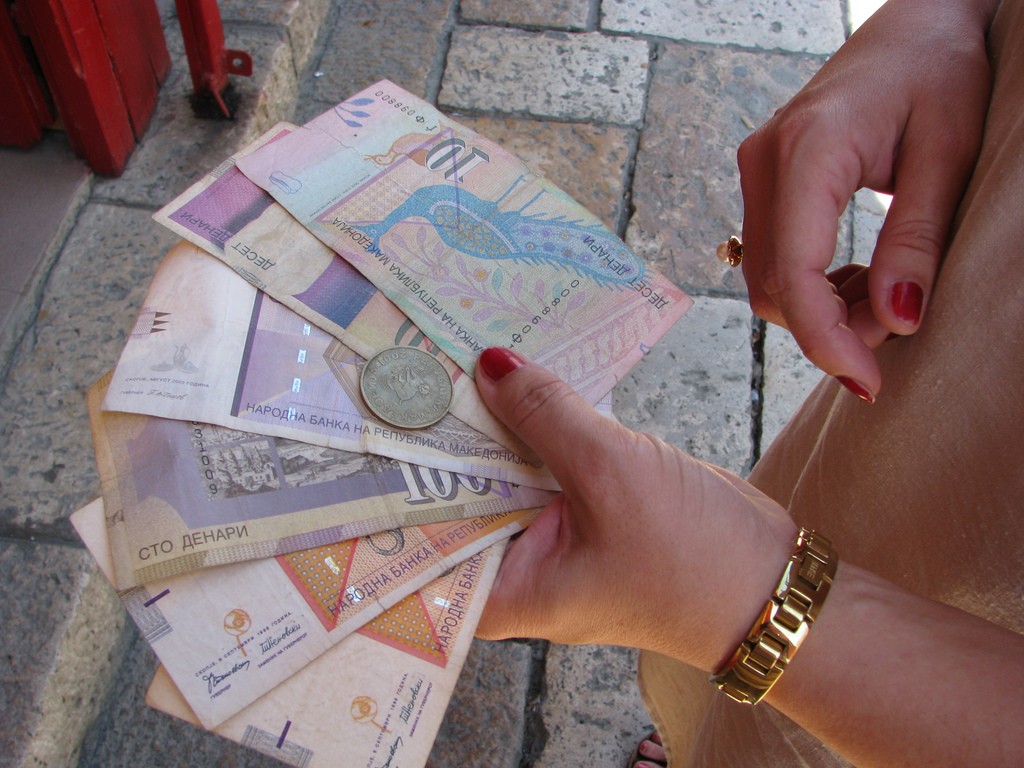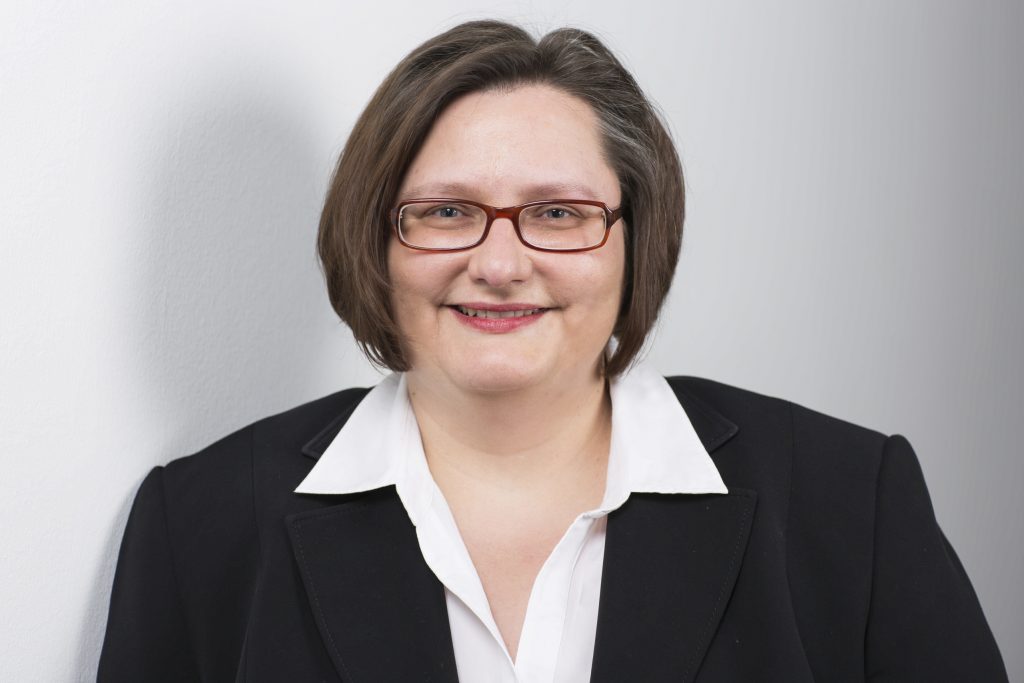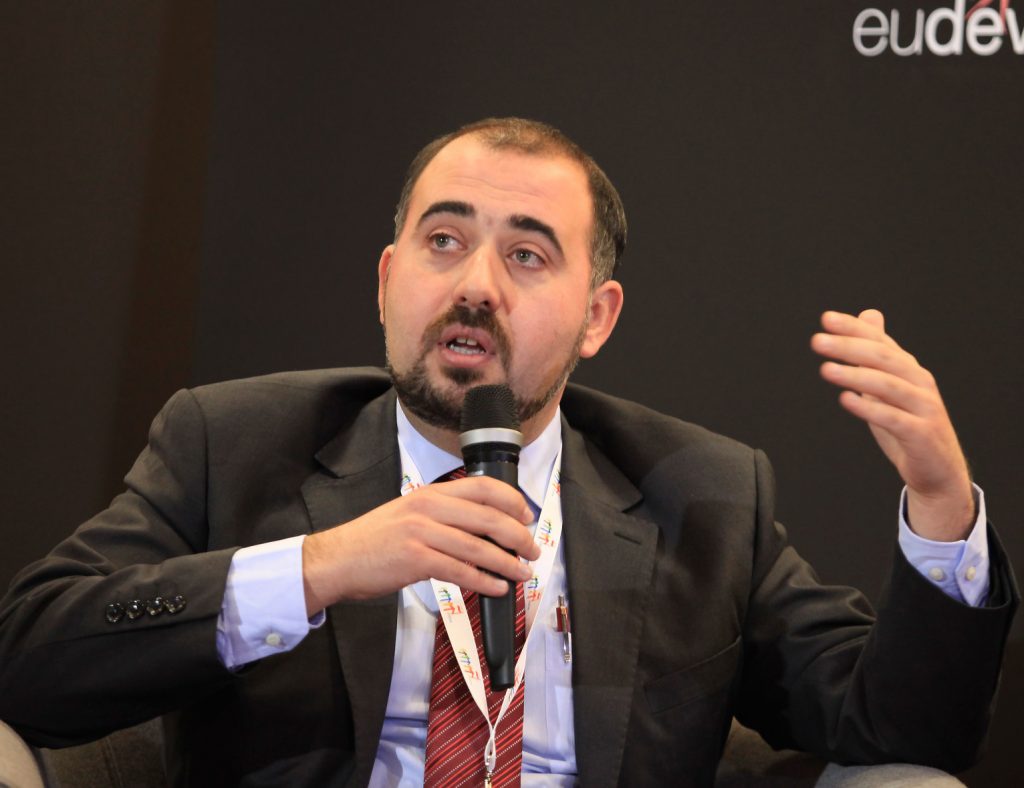“Citizens Need to Be Empowered to Support Democratic Change”
After years of political crises and shortly before the elections, we talked to political analyst and social entrepreneur Dane Taleski about overcoming the political crisis in Macedonia, the role of civil society and the challenge of resurrecting democratic values.
BTI Blog: Many observers consider the ongoing political crisis in Macedonia the most severe since the country’s independence. Do you share this opinion? What is your biggest concern?
Dane Taleski: I think the political crisis is not as daunting as the ethnic conflict in 2001. Also, don’t forget the greatest external challenge – the lingering “naming dispute” with Greece, which has paralyzed the country’s Euro-Atlantic integration. The current political crisis, which first escalated in 2012 and has deeper roots, is probably the second-biggest internal challenge for this fragile democracy. I hope that the resolution of the political crisis will end a regime that has abused power and become massively corrupted. I am concerned that the regime might persist, as in 2012 when the police threw opposition members of parliament and journalists out of parliament. This gross violation remained unresolved despite an internationally brokered agreement.
BTI Blog: The opposition has been boycotting parliament since the early elections in 2014. The conflict escalated further after Zoran Zaev, the leader of the Social Democratic Union of Macedonia (SDSM), released wire-tapped communications that allegedly proved the ruling VMRO-Democratic Party for Macedonian National Unity’s (VMRO-DPMNE) involvement in corruption, abuse of power and electoral fraud. Was Zaev well advised to do so? And how do you, as a former member of the executive board of the SDSM, assess the opposition’s role in the crisis?
Taleski: Zoran Zaev had a political and moral obligation to disclose all of the material in his possession. The disclosure created opportunities to resolve the crisis. The opposition returned to parliament in September 2015, as obliged by the June 2/July 15 agreement, and a special prosecutor was elected to investigate all of the allegations and hold politicians accountable. The opposition supports the implementation of the agreement, hoping that it will produce the changes necessary for free and fair elections in June 2016. But, in my opinion, the opposition needs to acknowledge that the crisis is not just a competition between government and opposition, but a struggle between a clique that wants to maintain the kleptocratic regime it has built and wider social segments that want democratic changes. The SDSM happens to be the most credible political alternative in the latter camp, and they need to redouble their efforts to create a wider coalition of democratic forces.
BTI Blog: How do citizens perceive the crisis? Protests against the government across ethnic lines have been on the rise since 2014, and violent clashes between protesters and the police have been rare. But polarization between pro- and anti-government camps is growing. How do you assess the outlook for Macedonian civil society?
Taleski: Citizens have been depoliticized, and they do not trust political parties and public institutions. They need to be empowered to support democratic changes. The government’s strategy of answering protests with counterprotests and media defamation has increased political polarization within civil society. Despite their demands and constructive proposals, civil society representatives were not sufficiently included in the brokering of the political agreement. Civil society holds the key to the sustainability of long-term democratic reforms. It is absolutely essential to build and maintain wide civil society coalitions that will cut across existing political and ethnic divisions.
BTI Blog: The European Union’s reaction to this political crisis in a candidate country was slow until the summer of 2015, when it brokered a crisis agreement between government and opposition to hold early elections in April 2016, which are now postponed and will be held in June, and embark on democratic reforms. Although implementation of the deal has been slower than expected, do you think we will see an end to the political stalemate soon? What comes next?
Taleski: I expect that the European Union will continue to play a key role in pushing for the implementation of the agreement. The precarious stability of the country depends on it. Incriminated politicians will probably deploy impediments and try to will institutions to act in their favor. The interim government, formed with the participation of the opposition, may face significant challenges concerning efficiency. The refugee crisis, with Macedonia located in the middle of the Western Balkan route, will further complicate the situation. The forthcoming elections in June 2016 are a critical juncture. They can mark a new start for democratization, but can also deepen the crisis if they turn into a security hazard due to heightened political competition, including that between Albanian minority parties. In the short run, implementation of the agreement will bring modest institutional changes and improvements in the electoral regime and media. However, in the long run, resurrecting democratic values and maintaining systemic changes will be a slow process.
Interview: Sabine Donner
Dane Taleski is Visiting Fellow at the Centre for Southeast European Studies at the University of Graz, where he focuses on the transformation of wartime networks into political parties in Western Balkan post-conflict countries and its impact on party competition, peacebuilding and democratization. Dane Taleski has served as executive director of two think tanks and was a member of the Social Democratic Union of Macedonia’s executive board (2009–2013). He holds a PhD in political science from the Central European University in Budapest. He was a Civil Society Scholar with the Open Society Foundations (2014) and has been a member of the Transformation Thinkers network since 2005.


